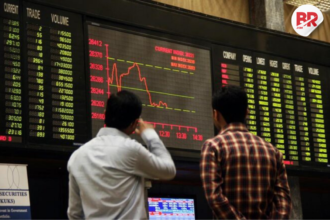
India’s key stock indexes edged lower on Thursday morning, weighed down by global uncertainty around the US-China trade deal and fresh tensions in the Middle East. At 10:13 a.m. IST, the Nifty 50 dropped 0.16% to 25,101.3, while the BSE Sensex fell 0.2% to 82,355.26.
It wasn’t just the heavyweights—broader indices like small-cap and mid-cap stocks also slid by about 0.3%. Of the 13 major sector indexes, 11 were in the red. The mood was cautious not only in India but across Asian markets, following a shaky performance by Wall Street overnight.

Why This Matters to You
If you’re wondering how this affects your investments—this isn’t just market noise. Tensions in the Middle East could push Brent crude prices up, making fuel more expensive in India. And uncertainty in US-China trade means global growth stays shaky, which hurts Indian exports and IT earnings.
India’s tech sector, heavily exposed to the U.S. market, took the biggest hit. The Nifty IT index dropped by 1%. That’s because Indian IT firms earn a large chunk of revenue from U.S. clients. When America sneezes, Indian tech catches a cold.
The US-China Drama (Again)
U.S. President Donald Trump claimed that a new tariff framework had been agreed to, aiming to revive the fragile trade truce with China. Sounds good—until you read the fine print. Or rather, notice the lack of one.
As VK Vijayakumar, Chief Investment Strategist at Geojit Investments, put it: “The tariff crisis is not over yet. With Trump’s credibility being what it is, it would be too early to discount the development as a positive for markets.” Source: Reuters
Translation? Markets don’t trust vague promises anymore—especially from someone who once wanted to buy Greenland.
Also Read TRADE WAR OVER? China Outsmarts US in Shocking Truce – Is America Losing Its Grip?
Middle East: Adding Fuel to the Fire
Meanwhile, Iran upped the ante by threatening to strike U.S. military bases in the Middle East if nuclear talks break down. This isn’t just a geopolitical flex—escalation could directly impact India by driving up oil prices. Two analysts warned that any Brent crude spike will hit India’s import bill and inflation.
Paytm’s Pain
Adding to market worries, Paytm shares crashed 8.4% after the finance ministry denied rumors about introducing a merchant discount rate (MDR) on UPI transactions. UBS noted that without MDR, Paytm’s core profitability could face downside risks in 2026–27.
In simple terms: No MDR means no extra revenue stream for Paytm. Investors didn’t take it well.
Between an unclear US-China trade deal, rising oil risks, and Paytm’s business model under pressure, investors are being pulled in every direction—and none of them look good.
As always, in global markets, no news is bad, and vague news? Even worse.
Also Read China Holds the Cards, the US Just Folded on Rare Earths












